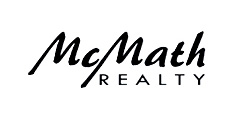In part one of this series on tax deductions for landlords, we discussed the difference between capital and current expenses and how those types of expenses can be deducted from your taxes. It is important to also keep in mind that you must be able to prove every expense that you deduct; therefore, you should always keep thorough records of every item that you deduct. Although everyone hopes to not get audited, you should be prepared as if you were expecting to be audited. If you are unable to document the amount of the expense and prove that it is directly related to your business, you will have to repay that deduction, plus interest.
With that in mind, read on to learn more about some of the specific tax deductions that are available to landlords.
Loan Interest and Points – These are usually the largest deductible expenses on rental properties (assuming that you have a mortgage on the property). You can deduct the interest that you paid on the mortgage on the property (both first and second mortgages), interest that you have paid on loans to make improvements or repairs to the property, mortgage points that you have paid to purchase (or refinance) a rental property, and even credit card interest that you have paid for items that were purchased for the rental property. Please note, however, that you can only deduct interest that was paid on money that has already been spent. If you have taken out a line of credit for the property but those funds have not yet been used, you cannot deduct any interest.
Depreciation of Assets – There are three types of expenses that are depreciable. First, there is the value of the structural dwelling itself, not including the land. Second, there is the value of improvements to the dwelling, including things like carpeting, cabinets, and appliances. Third, there is the value of business equipment, such as computers. In order to be deducted, these types of expenses must be depreciated and spread out over a span of several years.
Taxes – Yes, you can deduct your taxes on your taxes. There are several types of taxes that landlords can deduct. Real estate taxes on the rental property; city, state, and local taxes; Social Security, Medicare, and unemployment taxes for employees; personal property and vehicle taxes; and permit and inspection fees are all tax deductible.
Repairs – Keep in mind that repairs are defined as returning the property to its original condition and are separate from improvements. As a general rule, keep in mind that repairs are done to things that are broken. Repairs can include painting, fixing plumbing, fixing air conditioning, etc. The cost of hiring contractors, renting tools, and incidentals can all be included in these expenses.
Maintenance – Maintenance differs from repairs in that maintenance does not occur because something is broken. Maintenance refers to tasks that need to be done periodically, regardless of the condition of the dwelling. Specifically, maintenance can include things like lawn care, snow removal, pool cleaning, and pest control. Homeowners’ association fees can also be included.
These are just a few of the tax deductions that are available to landlords. For more information on available tax deductions, check out part three of this series.
Contact McMath Realty to find out how we can help landlords manage their rental properties. McMath Realty can provide all of the daily management that is required for your rental properties, from finding tenants to collecting rent. Get in touch with McMath Realty today to learn more.
Contact McMath Realty to learn more today https://mcmathrealty.com//contact.php.
